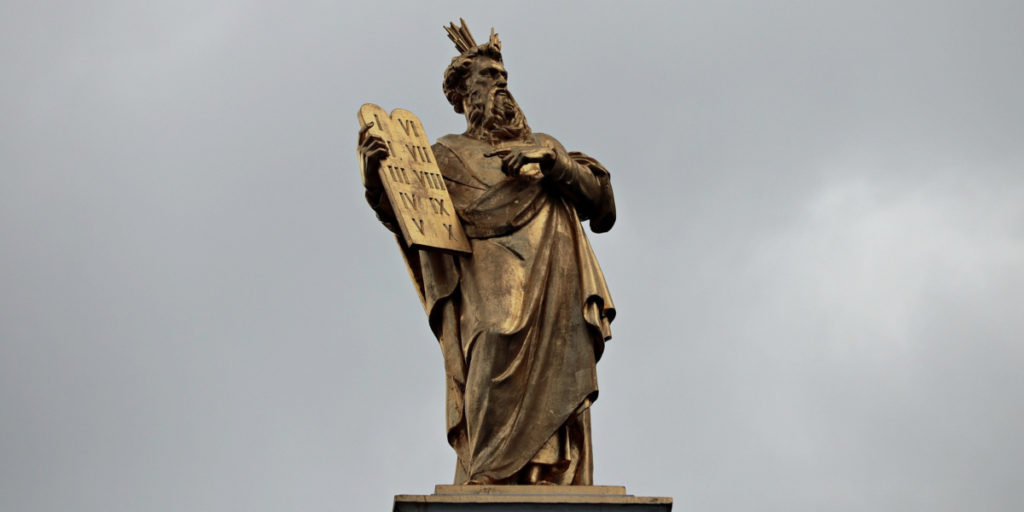From the time COVID-19 was confirmed as a global pandemic, there have been a number of social, political and economic injustices taking place in homes and societies. Millions of people across the world cannot find any peace of mind as they are in one way or another oppressed. This is either directly by the COVID-19 infection or indirectly by its social, psychological, economic, political and religious effects.
In some cases, the oppression is too much and the cry of God’s people (this is ALL human beings) is too loud and it reaches God. How have church leaders the world over hearkened to the call by God to come to the deliverance of God’s people? When faced with a crisis of the magnitude of COVID-19, leadership is key. The instinctive reaction of a leader is to use physical strength to combat the problem; the reality at hand is that no one individual can effectively combat the problem on their own. There is a need for soliciting the right tools, building the right skills, and forming the right partnerships. In the Ugandan context, there are cries of increased sexual- and gender-based violence as many people are in lockdown and spend a lot of time together with their partners. There are many families going to bed with empty stomachs day in day out. Many people cannot access clean water for drinking, let alone for washing hands since many people live below the poverty line. Yet others are psychologically challenged.
Exodus and COVID-19
What can we learn from Exodus 3:7 – 4:17? In the passage, as Moses tends his father-in-law’s sheep, God interrupts his daily routine and calls him to undertake a rather dangerous pilgrimage back to his adversary (the pharaoh of Egypt), the very one from whom he had run away. Moses task, you see, was to persuade the Pharoah to let God’s people go. Up until this moment, it seemed as if Moses had found peace with himself by settling for a new life away from his people and God’s command was an impossible mission to him. However, God does not just send Moses with empty hands; rather God empowers him, equips him, and provides him divine help and presence throughout the mission. With God’s magnificent power, God makes Moses’ staff an effective tool to help him in his task.
God reveals Godself to Moses and instructs Moses to set off on a journey to Egypt and liberate the Israelites from the yoke of Pharaoh to go and worship God in freedom. Having suffered oppression, it was now time for the Israelites to receive justice, leave the oppressor’s land, and go settle in the Promised Land of freedom.
Moses has two unspoken fears. First, he must confront the fear of failure. You see, Moses had attempted to lead the Israelites to freedom and he failed. In that instance, Moses killed an Egyptian he had seen beating a Hebrew, an action that made him a wanted criminal. When he tried to arbitrate between two Hebrews who were fighting, they rejected his counsel and Moses knew that his previous action was now public knowledge. Faced with the increased risk of capture, Moses flees for his life (Exodus 2:11-15). In light of this earlier failure, can he attempt to be the leader of his people again? At the same time, what justifiable reasons could he have to refuse God’s call and take leadership this time around? Second, Moses must confront the fear of the unknown as he steps out of a comfortable, familiar life. He is now out of danger, having found refuge in the land of Midian. He has even married and secured a job as a shepherd of his father-in-law’s sheep. Moses was at peace and comfortable in Midian. He pleads with God to leave him alone and find someone else to send.
Despite all these excuses, God does not release Moses from his call. Israel needed a leader to liberate them from slavery and God was not looking for a perfect person for the job, one willing to go. No, God was looking for one whom God would go with as an assurance that the mission was God’s. Such a person God would equip with the right skills, the right tools and the right partnerships. It is worth remembering that God begins by saying;
I have observed the misery of my people who are in Egypt; I have heard their cry on account of their taskmasters. Indeed, I know their sufferings, 8 and I have come down to deliver them from the Egyptians, and to bring them up out of that land to a good and broad land, a land flowing with milk and honey…
(Exodus 3:7-8 NRSV)
It is God who seeks Moses out and not vice versa. God assures Moses that he was not going for the pilgrimage alone but with God as the number one helper: “I will be with you”, says the Lord (Exodus 3:12) to affirm that this was God’s mission. God’s revelation to Moses as I AM, a name that God had never told to any of Moses’s ancestors, confirmed to Moses that the God of his ancestors was this same ‘I AM’ (Exodus 3:14-15). And this revelation builds up the courage and confidence of Moses as he undertakes the pilgrimage.

Moses can be likened to the church leaders in this day—those who must step out of their comfort zone and provide leadership. However overwhelming the situation is, God is in the know and has not abandoned humanity. So what can church leaders who may feel overwhelmed by the mission do? The church leaders can lead. They can lead in advocacy for the poor and the vulnerable to ensure that they do not become invisible in the face of adversity but have their needs met. They can call our government, churches and the corporate world to find ways to feed the hungry and call for fair prices for basic food stuffs in local markets. They can advocate for proper use and accountability of funds set aside for priority purposes, and call out those stealing national resources that have been earmarked to mitigate the spread of the virus. They can lead by educating their congregations. It is high time that church leaders used their God-given skills to teach people to adhere to the public health guidelines and to reduce stigma and discrimination by spreading love. They can lead through innovation, imagining new ways to offer pastoral accompaniment while observing physical distancing. They can lead by joining hands with those who affirm life to preach hope and promote life giving messages, being realistic that while life’s journey is not always easy God is among us to provide. God has given the church leaders the right skills, the right tools and right partnerships to help us wade through this valley of the shadow of death without out getting overwhelmed. We need to heed the call of God and work towards liberating the people by lessening their pain.
COVID-19 and Liberation Leadership
Church leaders have a responsibility to collaborate with those who have the platforms for communication (e.g. the media houses), encourage the population to abide by the WHO-recommended safety measures and precautions which will help contain the virus, and counter those who are spreading myths and unconfirmed conspiracies about COVID-19 so that the people get accurate information. Church leaders can also advocate for employees when employers decide to terminate salaries while workers are required to stay at home. They can preach about our shared responsibilities in our families, calling out forms of violence committed against spouses, children or relatives.
As we confront a situation such as this pandemic, we should always remember that God has not left us alone in this pilgrimage. God is not only walking with us and holding our hands and covering our backs, but God also in a position to teach us what to do and how to do it so as to bring about justice and peace. This will make our homes, surroundings, and the world a better place as we wait for the time when we shall victoriously march out of COVID-19-related oppressions. We do not need to forsake who we are or to have a lot in order to bring about the desired change in the face of a global challenge. I AM is in a position to miraculously use exactly what we have, however insufficient it may seem to be, to enable us overcome this overwhelming situation and ensure justice prevails in our homes and communities. Even in the face of COVID-19, God continues to make Godself known to us in a number of ways, such as infection control measures that can be embraced to contain the spread of the virus. That is enough affirmation as we set out to confront the oppressors in our societies; I AM is present to equip us with the skills, tools, and partnerships so as to build our confidence and give us the authority with which we must deliver our nations from this oppressing global crisis.
The world needs leaders like Moses who are willing to lay aside their fears and heed God’s call, take the risk, and utilize the talents of everyone in the community to deliver the people from the current misery. A two-pronged approach to leadership is needed, namely, to liberate the oppressed and to confront the oppressor. In the Pilgrimage of Justice and Peace, God’s people do not walk alone but with God, the ultimate source of their help and confidence.

